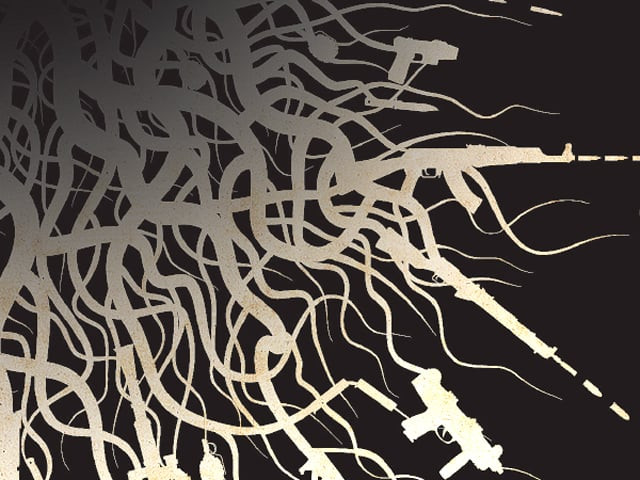The state in peril
This March 23 is perhaps the gloomiest because we have opposed terrorism inflicted on us.

The state in peril
The result of this policy of ungoverned spaces’ has been the re-establishment of Pakistan’s Tribal Areas in the north as the domain of terrorism, with domination of adjacent administered territory, including Peshawar, the headquarters of the Khyber-Pakhtunkhwa province. What Pakistan finds difficult to defend today is its claim on North Waziristan, where foreigners raise terrorist warriors to attack across the border as well as deep inside the country, from Peshawar and Islamabad to Karachi. It is also difficult to deny that the Tribal Areas, where the Pakistan army is fighting a fluctuating battle with the likes of Mangal Bagh, are also the place of muster for the Talibanised Punjabi youths supplied by jihadi militias.
Although the Punjab government is at pains to deny that Punjabis can be Taliban, the fact is that, in sheer numbers, the Punjabis now found among the ranks of the terrorists fielded by al Qaeda could be more than the Pakhtuns. This estimate is based on the observation that Pakhtuns seem to be more Talibanised, not because they believe in the extreme al Qaeda world view, but because they live under the informal governance of the terrorists and have to follow their decree. The Punjabi terrorist first believes in the creed of terror, then undertakes the journey out of his province.
This March 23 is perhaps the gloomiest because we have opposed terrorism inflicted on us by al Qaeda with a self-destructive extremism of our own. Add to this the misdiagnosis that terrorism against Pakistan is being orchestrated by America, India and Israel, to target and destroy our nuclear weapons. The clergy has been agitating in favour of a flawed man-made law and has succeeded in indoctrinating ordinary Pakistanis and state employees in favour of killing people they suspect of insulting the Holy Prophet (pbuh). The example of the arrest and acquittal of CIA contractor Raymond Davis has demonstrated that the people are not willing to follow the extreme prescriptions of the religious parties when they refuse to stage a ‘revolution’ against the government.
After 64 years, Pakistan is waking up to its India-obsessive strategy and is gradually rejecting the ‘security state’ paradigm that has caused crippling wars that have not benefitted the country. If the military still wants to adhere to this paradigm, it may find itself isolated in the face of the mainstream political parties, the PML-N and the PPP, who wish to change it. As 2011 rolls on, Pakistan is economically hamstrung by a chronic energy shortage, state corporations that supply basic amenities verging on bankruptcy, and a private sector paralysed by law and order problems. Normally, this is the time to wake up and change tack.
As Pakistan thinks of solutions, it must first realise that any measures adopted must be rationally acceptable inside Pakistan as well as to the world outside. The most worrying sign is Pakistan’s international isolation as it tackles its disorder. The year 2011 could be crucial because this year the military establishment might well break from its past pattern and save the country by not exploiting the internecine national politics of the day.
Published in The Express Tribune, March 23rd, 2011.















COMMENTS
Comments are moderated and generally will be posted if they are on-topic and not abusive.
For more information, please see our Comments FAQ